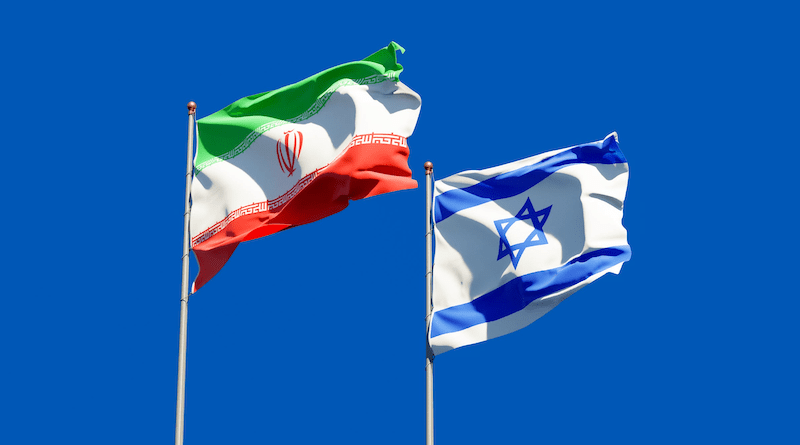Iran’s Calculated Moves: Israel’s Vulnerabilities Unveiled – OpEd
By Altaf Moti
Israeli Prime Minister Benjamin Netanyahu’s recent order to attack the Iranian consulate in Damascus had far-reaching implications. Beyond the usual tactics of limiting arms flow to Hezbollah or pushing back Iranian-backed groups from its northern border, this strike aimed to eliminate the Iranian leadership in Syria. However, it also exposed Israel’s vulnerabilities.
Gaza Conflict and Stalled Offensive
The backdrop to this attack is the ongoing conflict in Gaza. After six months of war, Israeli ground forces are encountering stubborn Palestinian resistance. Despite biblical-scale destruction and immense suffering, Hamas fighters remain defiant. The people of Gaza have not turned against them and the occupation of Rafah seems inconsequential. Israel’s offensive is stalling and opposition to Netanyahu’s leadership is mounting. The world’s opinion of Israel, under his stewardship, has soured, and it is increasingly seen as a pariah state.
Netanyahu’s Calculated Move
Israeli Prime Minister Benjamin Netanyahu is no stranger to strategic maneuvering. His decision to attack the Iranian consulate in Damascus was a high-stakes gamble—one that aimed to achieve multiple objectives simultaneously. Let’s break down the key elements:
1. The Victim Card: Netanyahu understands the power of narrative. By portraying Israel as perpetually under threat, he reinforces the myth that the nation is fighting for its very survival. This narrative resonates with both domestic and international audiences. The attack on the Iranian consulate was a theatrical move—a way to evoke sympathy and rally support.
2. Iran as the Common Enemy: Netanyahu’s playbook often revolves around Iran. He consistently paints Iran as the ultimate adversary—a nation bent on Israel’s destruction. By targeting the Iranian consulate, he sought to reinforce this narrative. The strike was not merely about eliminating a diplomatic outpost; it was a message to the world: “We are at war, and Iran is our primary foe.”
3. Dragging America In: Netanyahu’s game extended beyond the immediate strike. He aimed to drag the United States into the conflict. Why? Because American involvement would elevate the stakes. It would transform a regional skirmish into a global showdown. The episode highlighted Israel’s dependence on external allies. Despite its military might, Israel cannot act unilaterally without consequences. It relies on the US for political cover, intelligence sharing, and strategic coordination.
Iran’s Strategic Patience
When Israel struck the Iranian consulate in Damascus, Iran’s leadership did not react impulsively. Instead, they exercised strategic patience. Here’s why:
1. Observing the Security Council’s Silence: The United Nations Security Council, the global body responsible for maintaining peace and security, remained conspicuously silent. Its failure to condemn the consulate attack sent a clear message: Israel’s actions were not universally condemned. Iran took note of this diplomatic gap.
2. International Support (or Lack Thereof): Iran understood that launching a retaliatory strike against Israel would not garner widespread international backing. Western countries, wary of further escalation in the volatile Middle East, advised restraint. They recognized that an overt military response could spiral into a larger conflict—one that nobody wanted.
Israel’s Dependence and Constraints
Iran’s calculated response also highlighted Israel’s limitations:
1. Dependence on Allies: Israel, despite its formidable military, relies on external allies. The US provides crucial political cover, intelligence sharing, and military cooperation. Netanyahu’s move underscored this dependence. Israel couldn’t act unilaterally without considering the broader geopolitical implications.
2. Strategic Dilemma: Israel faced a dilemma. How could it strike back effectively without risking further isolation or triggering a wider conflict? The situation revealed the tightrope Israel walks—a balance between asserting its security interests and avoiding overreach.
3. Lack of Freedom to Choose: Israel’s freedom to choose its response was curtailed. It couldn’t act with complete autonomy. The delicate dance between diplomacy, military action, and global opinion shaped its options. Netanyahu’s gamble had consequences beyond the immediate strike.
The Broader Implications
Netanyahu’s move was a double-edged sword. While it reinforced Israel’s image as a resilient fighter, it also exposed vulnerabilities:
1. Shift in Perception: The once-unassailable image of Israel as an invincible military power is now under scrutiny. The world watches closely, assessing how Israel navigates this delicate situation.
2. The Strategic Landscape: To delve deeper into Israel’s vulnerabilities, we must examine the strategic landscape. Historically, Israel has relied on its military prowess, technological superiority, and unwavering support from the United States. However, recent events have chipped away at this facade.
The prolonged conflict in Gaza has strained Israel’s military. Despite its advanced weaponry, the inability to decisively defeat Hamas raises questions about its effectiveness. The world now witnesses a battle-hardened Palestinian resistance that refuses to yield.
Israel’s actions have alienated many nations. The once-solid support from European countries has waned, and even the US hesitates to endorse every move. The UN’s failure to condemn the Iranian consulate attack underscores this shift.
Iran’s influence in the Middle East has grown steadily. Its alliances with Syria, Hezbollah, and other groups pose a challenge to Israel’s security. The attack on the Iranian consulate was a desperate attempt to disrupt this network.
Israel’s reliance on cutting-edge technology makes it susceptible to cyberattacks. Iran, with its own cyber capabilities, can exploit weaknesses in Israel’s infrastructure.
3. Lessons for Israel: Netanyahu’s risky move serves as a wake-up call. Israel must recalibrate its approach. Diplomacy, unity, and strategic restraint are essential. The victim narrative, while potent, must be wielded judiciously.
As a matter of fact, the Iranian consulate attack serves as a wake-up call—a reminder that vulnerability exists even for the seemingly invincible. The world awaits Israel’s response, hoping for wisdom over recklessness. As tensions persist, the geopolitical chessboard remains in flux, and the next move will shape the region’s dynamics.

